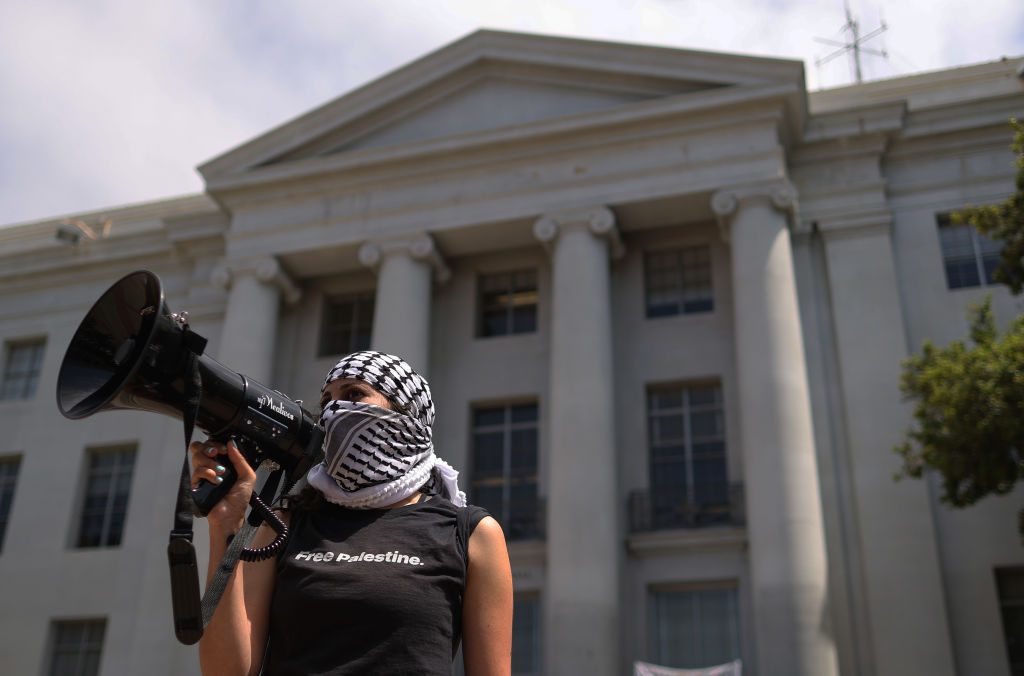Over a third of US students believe it is acceptable to use violence to stop a speech on campus, according to a new survey.
The Foundation for Individual Rights and Expression (FIRE) has published its 2026 College Free Speech Rankings, an annual review of American universities’ speech protections and climate of open inquiry. When asked whether using violence to stop a public speaker on campus is acceptable, only 66% of students responded that the tactic is “never acceptable”. Meanwhile, 15% responded that violence is always or sometimes acceptable, with a further 19% saying that it was “rarely acceptable”. The combined 34% is a record figure.
FIRE’s rankings have been running since 2020, and this year’s instalment arrives off the back of continued protests on national campuses over the war in Gaza, as well as the Trump administration’s attempts to withhold funding from institutions whose speech policies are perceived as illiberal. Earlier this month, a federal court ruled that funding cuts imposed by the administration on Harvard violated the university’s rights. In July, Columbia University paid the White House a $200 million settlement having been accused of failing to prevent antisemitism on campus.
The 34% of students who at least occasionally defend the use of violence to interrupt a speech is an increase from the 32% who said the same last year. In 2022, that figure was 20%. There are also record numbers of students who think it is acceptable to shout down speakers (71%) and to block other students from attending a speech (54%).
| Use of disruptive tactics to prevent campus speeches hits record high |
| Percentage of US students who think using cited methods to shut down speakers can be acceptable |
At the political extremes, over a third of “very liberal” students (36%) and “very conservative” students (37%) believe that violence is at least rarely acceptable. Where 29% of female students think violence is at least rarely acceptable, 38% of males surveyed believe the same. This rises to 46% among gender non-conforming students.
These rankings present a concerning picture of the state of free expression on American campuses. Of the 257 schools surveyed, 166 received an F grade, with marks awarded based on factors including how comfortable students feel publicly expressing their views, as well as institutional neutrality on political issues. Meanwhile, only 11 colleges received a grade of C or higher.
Free speech protections were found to be particularly lacking in elite universities. Of the eight Ivy League colleges, only two — Yale and Dartmouth — appeared in the top half of the FIRE table. Columbia University, whose campus has played host to anti-Israel protests for over a year, ranked second from bottom, beaten only by Barnard College — which is located in New York and affiliated with Columbia.
Public speakers who have been assaulted at university events include the gender-critical swimmer Riley Gaines and the conservative commentator Michael Knowles. The FIRE report also quotes a University of Indiana student who claims that the institution “arrested and attacked pro-Palestine protestors”. “Fewer students believe that controversial ideas should be heard on campus, and more are willing to allow others to suppress speech through disruption — or even violence — than ever before,” FIRE’s Chief Research Advisor Sean Stevens says of this year’s data. “These aren’t isolated findings: they represent a troubling, accelerating shift on campuses across the country.”










Join the discussion
Join like minded readers that support our journalism by becoming a paid subscriber
To join the discussion in the comments, become a paid subscriber.
Join like minded readers that support our journalism, read unlimited articles and enjoy other subscriber-only benefits.
Subscribe